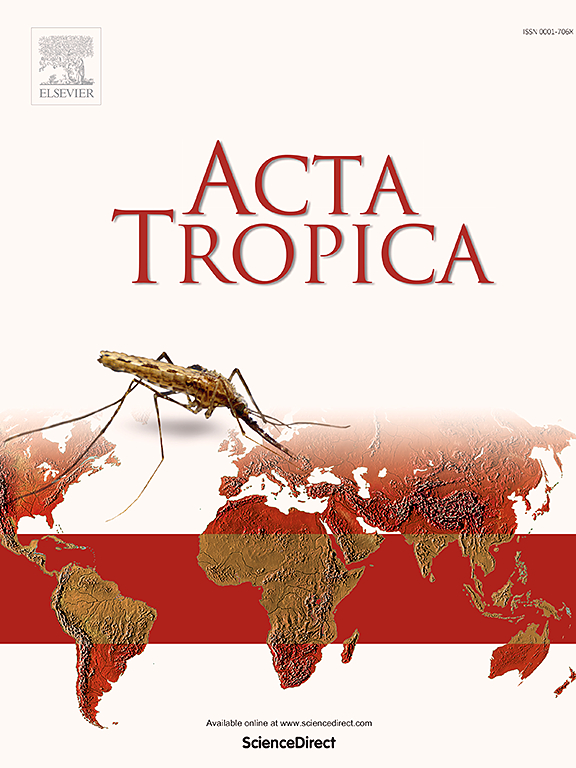One health research to mitigate health burden of American trypanosomiasis in Mexico
IF 2.1
3区 医学
Q2 PARASITOLOGY
引用次数: 0
Abstract
American trypanosomiasis (AT), or Chagas disease, is an ancient disease with an interesting history. Despite efforts to control AT, the global burden of this neglected vector-borne disease persists. More than six million people around the world are infected with Trypanosoma cruzi (T. cruzi), and about 75 million are at risk of infection in the Americas. Mexico is one of the countries most affected by AT with 4 million people at risk of infection with T. cruzi. Approximately 60 % of the accumulated confirmed cases occurred in the southeast region; however, an increase in the number of cases was observed in the northern states of the country in recent years. AT control efforts in Mexico focus on interrupting vector-borne disease transmission through integrated triatomine management and eliminating T. cruzi transmission through the congenital and blood transfusion routes. There is no specific prophylaxis beyond vector control. Research revealed the complexity of AT as a vector-borne disease system and its impact on the health of humans, domestic animals, and wildlife, which calls for comprehensive responses focused on transdisciplinary and multisectoral collaboration. One Health (OH) is an unifying approach aiming to achieve optimal health outcomes among people, animals, and their shared environment, which we suggest can be applied in collaborative research to enhance our understanding of AT as a vector-borne disease system with diverse components across epidemiological landscapes. Suggested action to implement OH research is presented herein for sustainable surveillance and control efforts to mitigate the health burden of AT that affects disproportionately poorer rural and semi-rural sectors of the population in Mexico and other Latin American countries.

求助全文
约1分钟内获得全文
求助全文
来源期刊

Acta tropica
医学-寄生虫学
CiteScore
5.40
自引率
11.10%
发文量
383
审稿时长
37 days
期刊介绍:
Acta Tropica, is an international journal on infectious diseases that covers public health sciences and biomedical research with particular emphasis on topics relevant to human and animal health in the tropics and the subtropics.
 求助内容:
求助内容: 应助结果提醒方式:
应助结果提醒方式:


